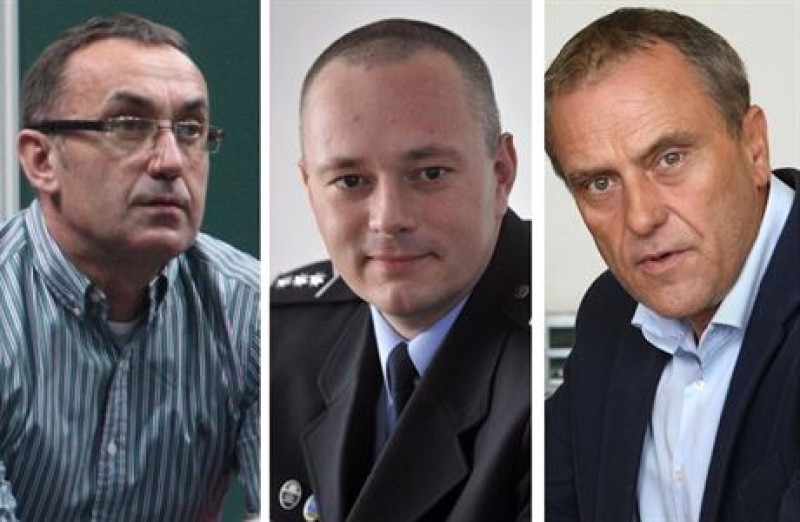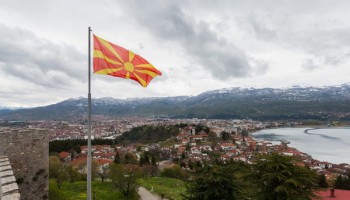The probe, led by the Czech Unit for Combating Organized Crime (ÚOOZ), is on-going.
The wheels began to turn on Oct. 13 with a police raid in Prague and Olomouc, two of the country’s largest cities. Suspects’ homes were raided and important documents seized.
The four who have been charged are Karel Kadlec and Radek Petrůj, two high-ranking police officers in the Olomouc region; businessman Ivan Kyselý; and Jiří Rozbořil, president of the Olomouc region.
Both policemen are accused of abuse of power; Kadlec is also charged with bribery.
Kyselý, the businessman, stands accused of being an accomplice to abuse of power, while Rozbořil – a prominent politician – is charged with bribery.
Of the four, Rozbořil is the only one to have been released; he says it’s because his connection to the case is minor. Kadlec, Petrůj and Kyselý have been held in detention since the raid.
Official information about the case has been scarce since detectives from ÚOOZ issued a gag order, saying they do not want to jeopardize the on-going investigation.
“Detectives from ÚOOZ have worked on the case of suspicion of abuse of power for more than a year,” the anti-crime unit said in a news release. The investigation targets those suspected of “influencing certain criminal cases and in leaking information negatively affecting the successful resolution of these cases.”
But reporters from the investigative web portal Neovlivní.cz say they have reviewed police documents that identify the key suspect as Kadlec, the deputy of the regional police department in Olomouc, who allegedly met with Kyselý nearly 50 times in the past year.
The two are alleged to have discussed interfering with investigations in Olomouc’s crime department, and exchanged information about companies that aroused the interest of the Olomouc police. Petrůj, the director of the crime department, is alleged to have influenced the cases.
Rozbořil, the president of the Olomouc region, strenuously denies any wrongdoing.
“I have never asked anybody for information outside my area of competence,” he told reporters. “I have never required information that could be classified as non-standard and I have never offered a bribe. From this point of view, I was merely in the wrong place at the wrong time.”
He is a member of the Czech Social Democratic Party (ČSSD, the largest party in Parliament). Despite pressure from the ČSSD, which has called for his immediate resignation, Rozbořil has refused to step down.
Adding intrigue to the affair is the absence of the General Inspection of Security Forces (GIBS), whose main purpose is to investigate crimes that may have been caused by members of the security service.
Officers from GIBS did not participate in Operation Vidkun, prompting criticism of the institution, and especially its director Ivan Bílek, from senior politicians.
Ten days after meeting with Prime Minister Bohuslav Sobotka on Oct. 23, GIBS director Bílek resigned, citing “private matters.”
The prime minister tweeted: “The director of GIBS Bílek asked to be relieved of his duties today. Due to the damaged reputation of GIBS it is a decent and reasonable decision.”
Although the investigation is on-going, it has already been hailed as a breakthrough by politicians and media outlets, which note that never in the Czech Republic's short history have this many high-ranking police officers been caught up in the net of a single operation.






